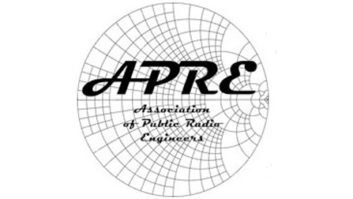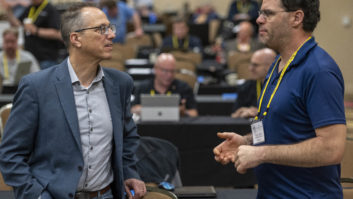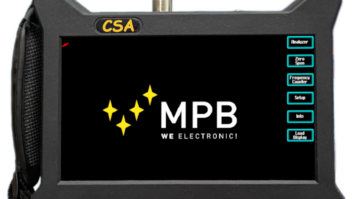Public Knowledge says the federal government should change its spectrum-allocation policies and procedures so that both the government and the private sector can operate more efficiently. That was the gist of two papers presented at a Public Knowledge-sponsored conference.
PK is a Washington-based public interest group that says it seeks to defend consumer rights in the “emerging digital culture.”
The papers, by PK Legal Director Harold Feld and economist Gregory Rose, were presented at the conference “Toward a Sustainable Spectrum Policy: Rethinking Federal Spectrum.”
One paper (PDF), “Breaking the Logjam: Creating Sustainable Spectrum Access Through Federal Secondary Markets,” suggested the government consider real-time leasing rather than simply clearing bands entirely for auction. In the paper, Feld and Rose discuss the FCC’s Part 15 “unlicensed” rules for low-power devices — which helped spawn exponential growth of wireless networks and devices. Now, mechanisms for providing spectrum access can no longer keep pace with demand, they write.
Real-time spectrum leasing “would combine the low barriers to entry and flexibility of unlicensed with the higher power and interference protection of licensed. Specifically, it takes the database and opportunistic sharing mechanism approved for TV White Spaces, combined with the ability to dynamically shift spectrum approved for use by public safety in the 700 MHz band, layered with real-time auction applications used for Internet advertising,” write Feld and Rose.
The second paper (PDF), “Breaking the Logjam: Some Modest Proposals for Enhancing Transparency, Efficiency and Innovation in Public Spectrum Management,” proposed ways to allocate spectrum within the current statutory structure, treating it more like budgeting and purchasing. The paper recommends that NTIA and the FCC take on a new role in forming a federal policy that “shifts federal agencies from the current fragmented system to one where agencies use existing wireless technology to access spectrum on an ‘as needed’ basis from a common pool, encouraging efficiency and providing flexibility,” according to Feld and Rose.












